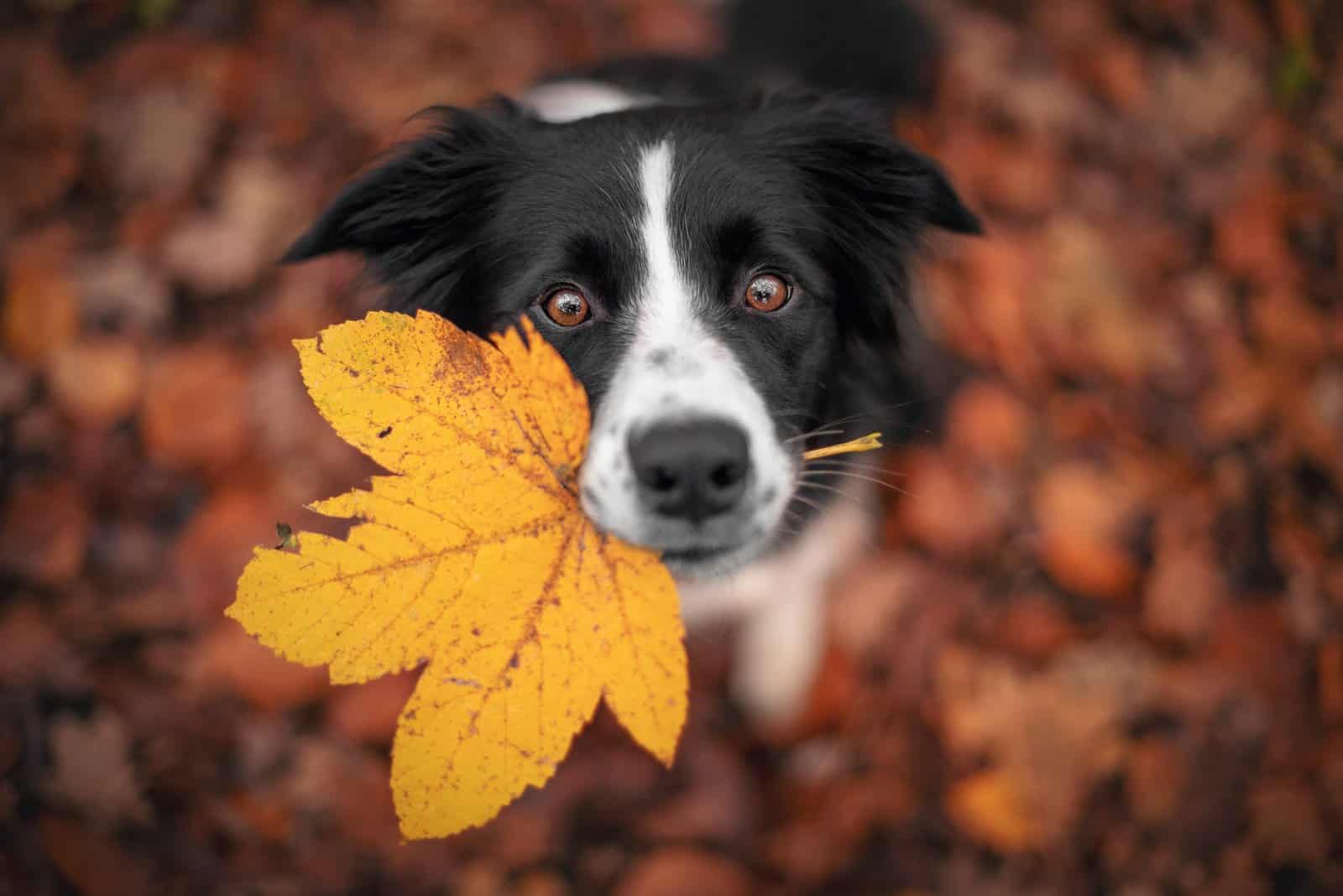Border Collies are more than just herding dogs. They are fun, highly intelligent, energetic dogs that enjoy indoor and outdoor activities with their owners.
These adorable pooches are known for their sharp minds and trainable, easy-going personalities.
Their cheerful looks and brilliant behaviors stand out, and many families nowadays want to have Border Collies as their family pets.
In this article, we talk about the Border Collie growth chart, Border Collie size, weight, health problems they may experience, and much more.
Border Collie Growth Chart By Age
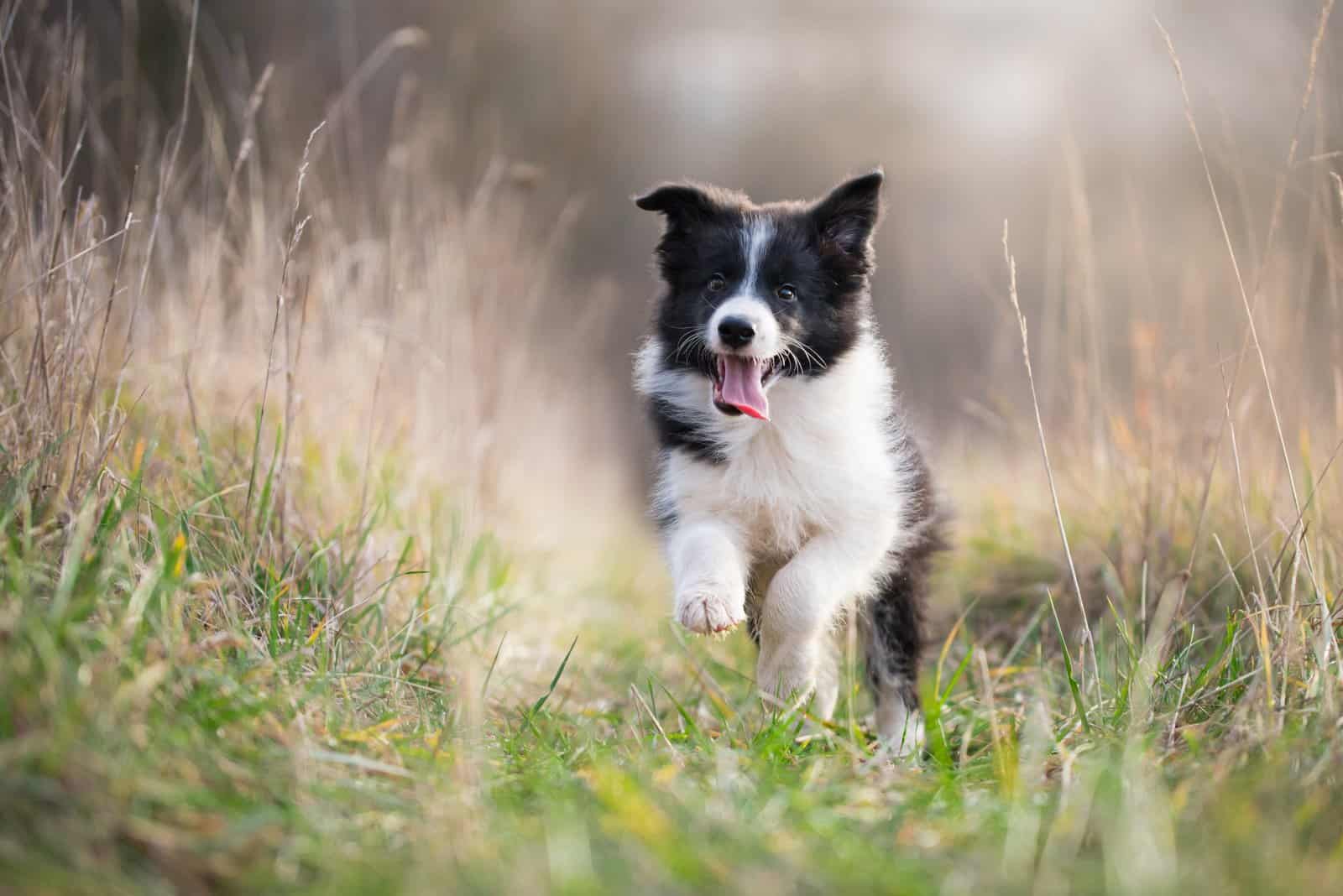
Border Collie puppies grow at a rapid speed, so we put together a simple chart where you can follow all the milestones your furry buddy will reach.
Please be aware that these numbers are just estimates of how much your Border Collie puppy and other medium-sized dogs might weigh. If you find your pooch to be a little above or under these numbers, do not worry!It is not a sign that your dog is underweight or overweight, as all dogs grow at a different rate. Regular checks at the vet and the right food with lots of activity will keep your dog happy and healthy.
Border Collie Puppy Growth Chart
[table id=435 /]
Using this Border Collie growth chart, you can calculate the future weight of your Border Collie.
Find your Border Collie’s age on the left and his current weight on the right.
If your Border Collie puppy weighs 13.0 lbs at the age of 6 months, continue following that column to the 12-month row, and his adult weight will be 26.0 by the time he turns one year old.
However, if you can’t find your Border Collie’s weight on this weight chart, there are a few other methods you can use to calculate your Border Collie’s adult weight.
Border Collie Weight Calculator No. 1
Your Border Collie’s weight is between two numbers written on the puppy growth chart. To calculate the weight of your Border Collie, you need to find the average of those two numbers.
If your puppy is 29 lbs at the age of 11 months, his weight is between 30.0 and 33.0 lbs on the chart above. Add those two numbers together, get the average, and then divide by two.
You will get 31.5 lbs which means your 11-month-old Border Collie’s adult weight will be 31.5 lbs.
Border Collie Weight Calculator No.2
Another method you can use to calculate your border collie’s weight is by dividing his current
age in weeks and his current weight.
If your Border Collie Puppy is 7 lbs at 12 weeks, divide those two numbers (7/12=0.58) and multiply them by 52 (our biggest weight in the puppy growth chart) and you will get 30.16 lbs.
A Border Collie puppy that weighs 7 lbs at 12 weeks of age should be 30.16 lbs when he becomes an adult.
Border Collie Weight Calculator No.3
If your puppy is 14 weeks old or more, use this method. All you have to do is weigh your puppy while he’s in his 14th week, multiply his weight by two, and add half of his weight at the moment.
Let’s pretend your 14 week old Border Collie puppy is 10 lbs. If you multiply that by 2, the result is 20 pounds. Subtract half his weight at 14 weeks, which is 5, and you’ll get 25 lbs.
Is Your Border Collie Underweight, Healthy, Or Overweight?

Many pet owners worry if their pet is the right weight for its age.
While all dogs grow at a different rate and numbers online are just the ideal estimates of what your dog’s weight should be, it is important to make sure they don’t go too much over or under their ideal weight.
You can check your Border Collie’s weight in the comfort of your home. Take a good look at your dog from above and from the sides. Try feeling his pelvic bones and ribs without putting too much pressure on his body.
• If you feel and see his ribs, spine, and pelvic bone very clearly, with a severe tuck under his tummy, it is a sign your dog is very thin, and you need to check if the reason lies in some health issues or a poor diet.
• If the ribs, spine, and pelvic bones are highly visible, easily felt, and the dog has an hourglass waist, your dog is underweight.
• If the ribs, spine, and pelvic bones are visible and very easily felt and the waist is well proportioned, your dog has an ideal weight.
• If the ribs, spine, and pelvic bones are not visible and not easily felt, there’s no waist, and no tuck under the tummy, your dog is overweight.
• If the ribs, spine, and pelvic bones are not defined, fat is covering the spine, chest, and tail base, there’s no waist and no tuck under the tummy, your dog is obese.
Border Collie Body Condition Score (BCS)
You can ask your vet to check the dog’s Body condition score or what we know as BMI for humans. Body condition score uses two different scales measuring fat levels in animals ranging from 1 to 5, and another other ranging from 1 to 9.
With the use of visualization and tactual exploration, the vet can score your Border Collie’s weight and give you advice if your pet’s weight needs some adjusting.
The ideal BCS for your puppy is 3/5 or 5/9 depending on the scale used.
Border Collies are a very active dog breed that enjoys their regular walks and activities outside the house.
If you find your dog to be under or over their recommended and healthy weight there are a few steps you can take:
1. See your vet on a regular basis and follow their diet instructions.
2. Check to see if your dog has any parasites or other health problems.
3. Switch to different dog foods and try to include fresh food and veggies.
4. Invest in high-quality puppy food and snacks made for your dog’s weight.
5. Depending on the dog’s weight, increase or decrease daily food intake.
6. Exercise is beneficial for both overweight and underweight dogs as it helps their bones and organs stay healthy.
For more useful information on the desirable nutrition for this dog, read our Border Collie feeding chart.
Genetics And Common Health Problems
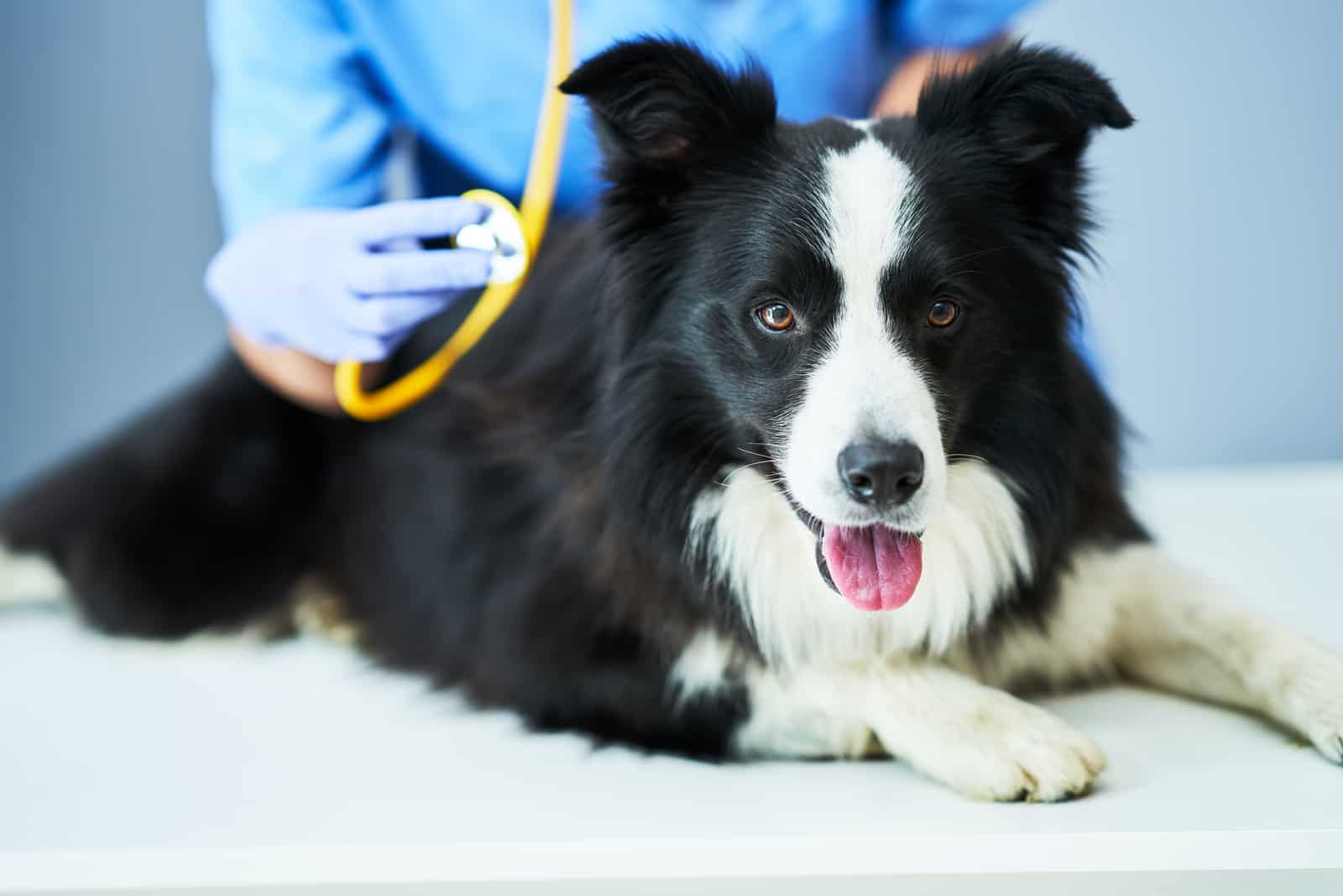
Many Border Collies are faced with some genetic and health problems from their early puppy stage. Many of their conditions, however, are not evident right away, so regular vet checking will help you detect any health problems your Border Collie might struggle with.
Some of the most common genetic and health problems that border Collies have are:
• Epilepsy
• Hip dysplasia
• Osteochondritis dissecans
• Progressive retinal atrophy
• Lens luxation
• Patent ductus arteriosus
• Collie eye anomaly
• Hypothyroidism
Osteochondritis dissecans and hip dysplasia usually occur when Border Collie puppies grow too quickly so x-rays and the right diet can help you identify and work on these conditions.
Oftentimes, the right solution for osteochondritis dissecans and hip dysplasia is surgery, while other conditions like epilepsy require lifelong medications.
Despite these conditions, Border Collies have a lifespan of 12 to 14 years and can live a happy and healthy life. Just make sure to visit the vet regularly, pay attention to their growth rate, and give them plenty of time for their favorite activities.
Developmental Stages of Border Collie Puppy
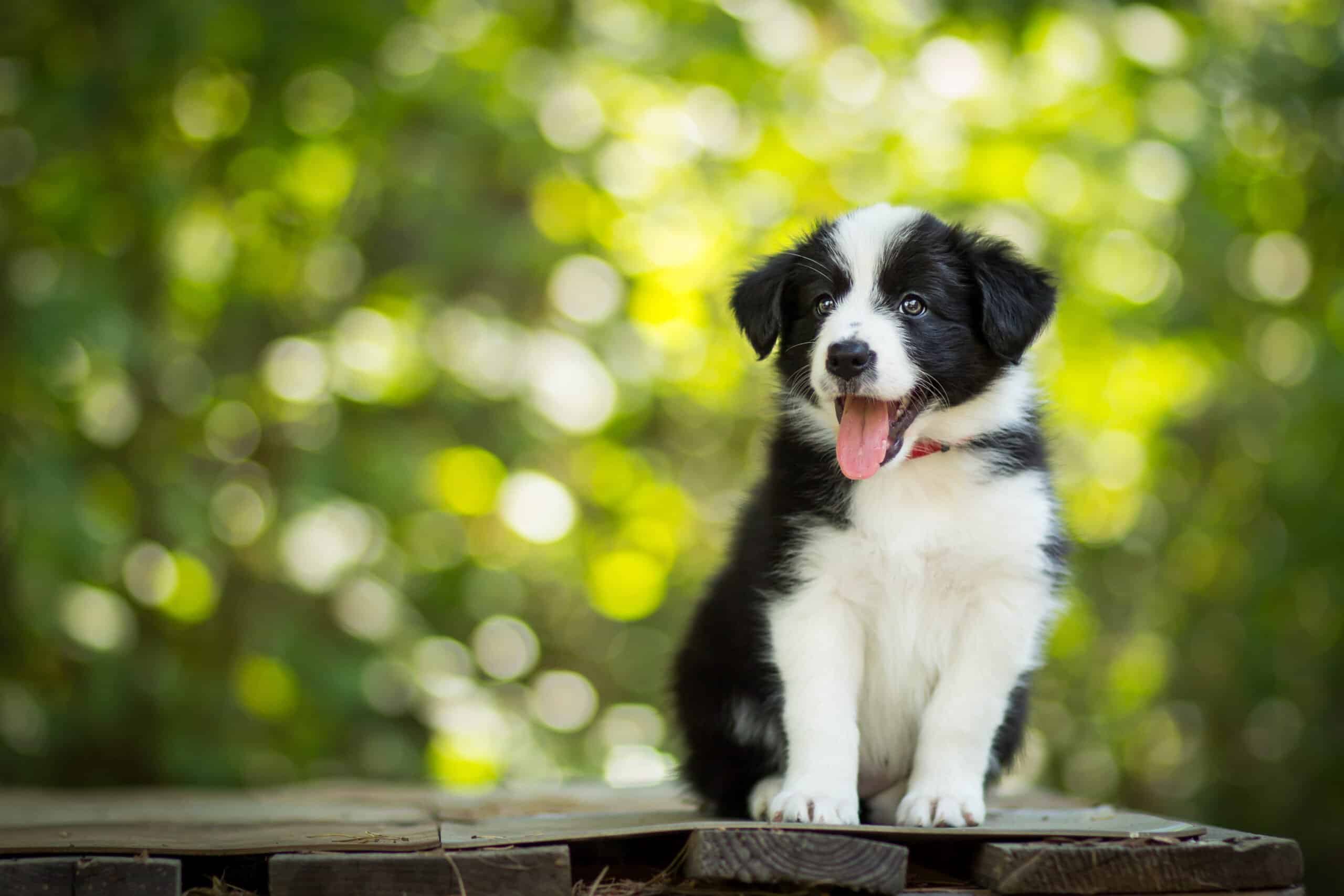
From Birth Up To 3 Weeks
Border Collie puppies are born very small.
Their average birth weight is between seven to fourteen ounces. They lose even more weight – water weight – within the first twenty-four hours of delivery.
However, they gain it back pretty fast. After the first 24 hours, their weight gain starts.
Border Collies gain from ½ to 1 ½ ounces a day, making them around 3 pounds 14 days after the birth.
This stage is full of big milestones for Border Collie puppies, such as opening their eyes, crawling, and growing their baby teeth.
3 Weeks To 12 Weeks
This stage is known as the socialization period where Border Collie Puppies investigate their surroundings and show the first signs of their active and energetic behaviors.
In this stage, they are still rapidly gaining weight, and by six weeks healthy Border Collie puppies should be four times their birth weight – adding about 2 to 4 pounds each week.
3 Months To 6 Months
This stage, also known as the juvenile period, is the time when your Border Collie’s weight levels off, and they start gaining a pound each week until they are six months old.
The juvenile period is the time when Border Collie puppies develop their motor skills and grow their adult teeth. This period is also filled with uncontrollable hunger as your little pooches need lots of dog food to support their fast metabolism and high energy levels.
6 Months To 16 Months
In this stage, your Border Collie puppy is about to reach its sexual maturity.
Female Border Collies start their estrus cycle at six months, while male Border Collies reach their sexuality one month later, at seven months.
Their physical appearance starts to change – ears go upright with the tips dropping and they have a complete set of adult teeth. They start looking lean and tall as they gain weight much more slowly in this period.
One thing you will probably notice if you own more than one pet is that, at this stage, Border Collies become closer with other animals in the pack.
16 Months To 36 Months
Transition to adulthood starts between 16 to 36 months for Border Collies.
After they passed their teenage period, they should have gained enough weight to support their bones and grow thick and shiny fur of varying colors.
Full-grown Border Collies should not have problems maintaining their healthy weight, as they slowly add more until they reach their ideal weight.
Female Border Collies become adult dogs by the age of two, while male Border Collies reach adulthood by 36 months of age.
How To Know At What Age Is A Border Collie Fully Grown?
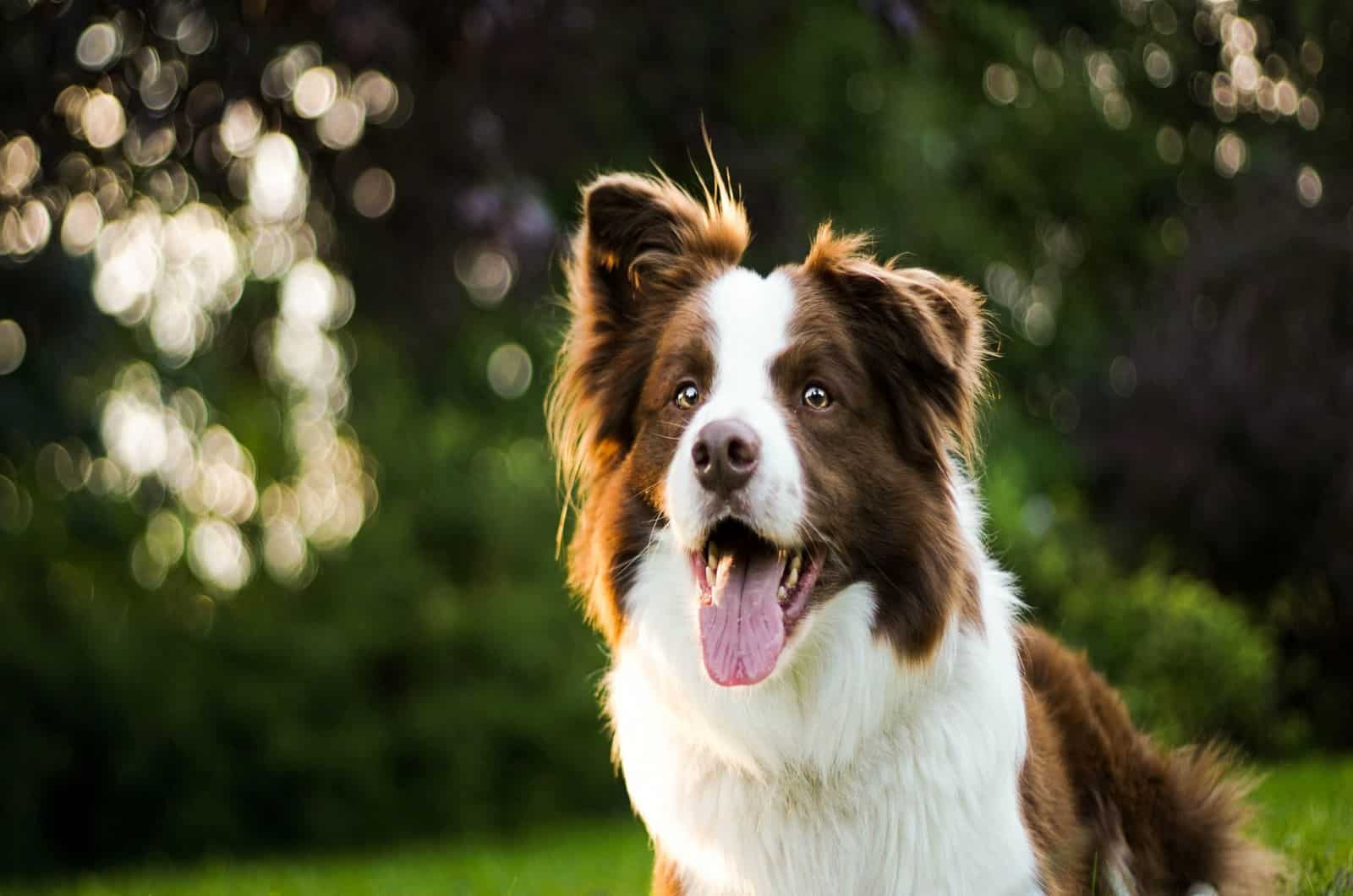
The majority of Border Collies stop growing when they are around 15 months old. Larger Border Collies, however, may grow for up to 18 months because they need a bit more to fill out their chests.
If you have a 15-month-old Border Collie, you can probably tell he has already reached his adult height and adult weight.
One great way to know if your Border Collie is fully grown is to look at his paws.
If his paws are much bigger compared to his legs and body, then he still hasn’t reached his adult size.
You can also ask the breeders you got your Border Collie from, as they might give you estimated weight and height based on your puppy’s parents and past litters. Border Collie puppies don’t outgrow their parents so they will probably know what to expect in the upcoming months of your Border Collie’s growth.
Border Collie Size Chart
Border Collies are medium-sized dogs, energetic, smart, and highly responsive to their environment.
The largest adult male Border Collies sometimes get classified as large dogs because of their weight. However, keep in mind that a dog’s weight can vary depending on the dog’s breed and gender.The difference between Border Collie males and females isn’t that significant though.
According to American Kennel Club Official Border Collie Breed Standards, mature male Border Collies should be between 19 to 22 inches tall or 18 to 21 inches tall for female Border Collies.
Final Thoughts
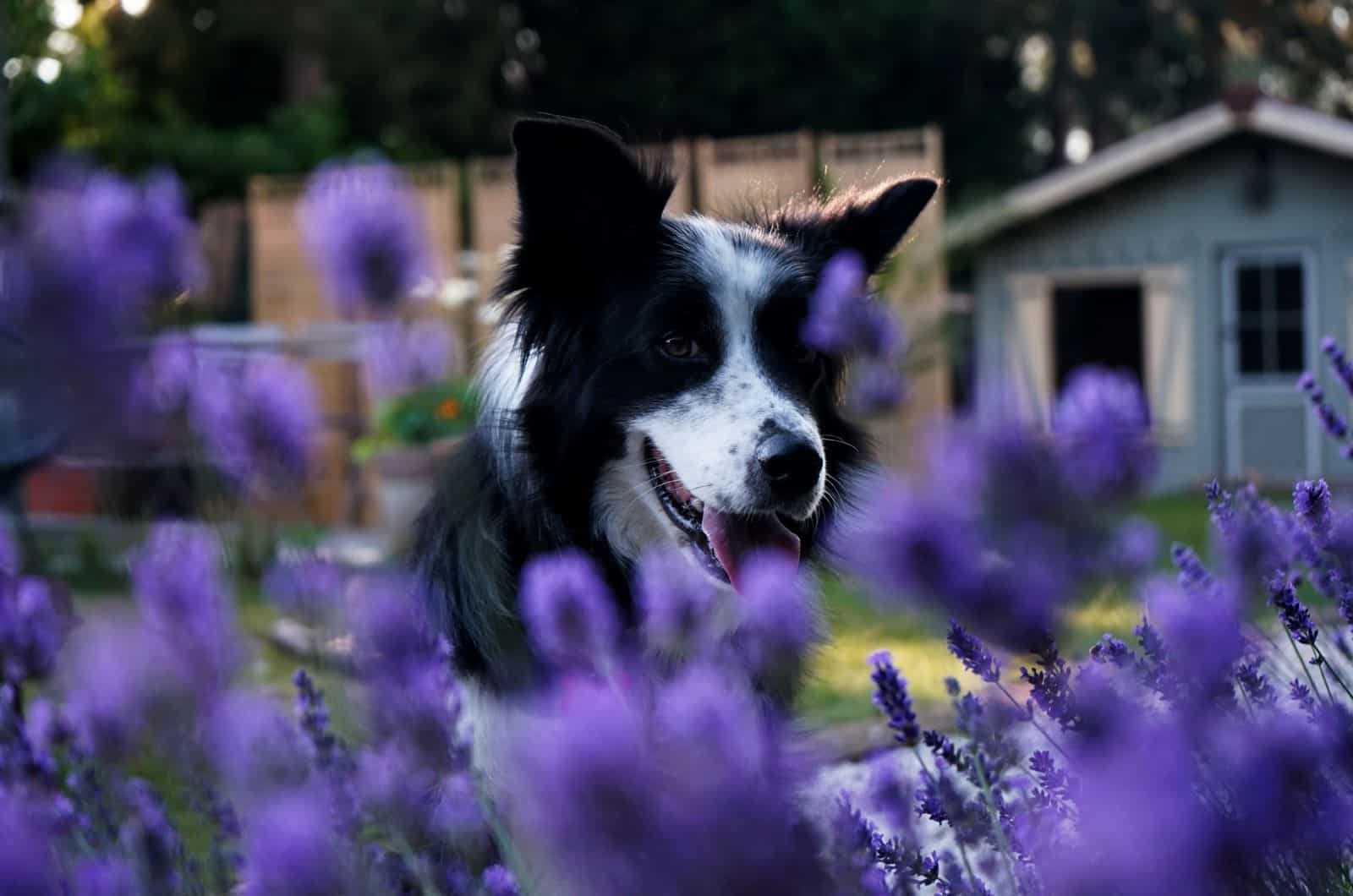
Border Collies are intelligent, eager to be challenged, fun, and adorable dog breeds. They grow rapidly and reach many milestones in a span of a year. They become adult Border Collies pretty fast but their size should not fool you.
They are as active and energetic as they are when puppies. To reach and maintain their ideal weight and make sure you have a healthy dog, follow our Border Collie growth chart and enjoy every second of your little pooch growing up.
READ NEXT:
• Do Border Collies Shed? Grooming Advice For Collie Owners
• The 4 Best Border Collie Breeders In The UK For 2022
• Mini Border Collie — Everything You Need To Know
